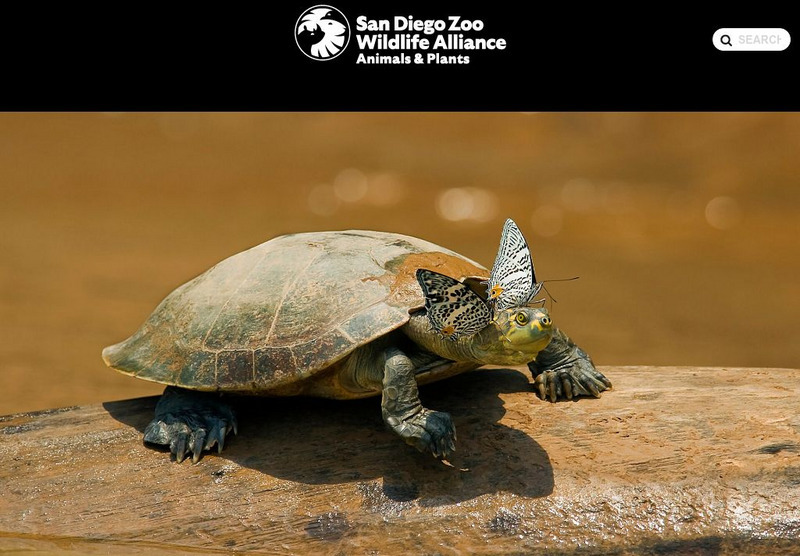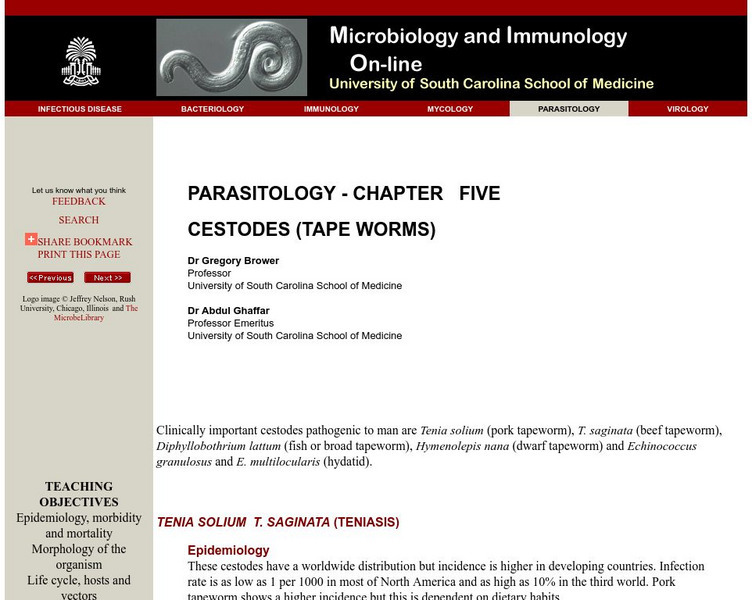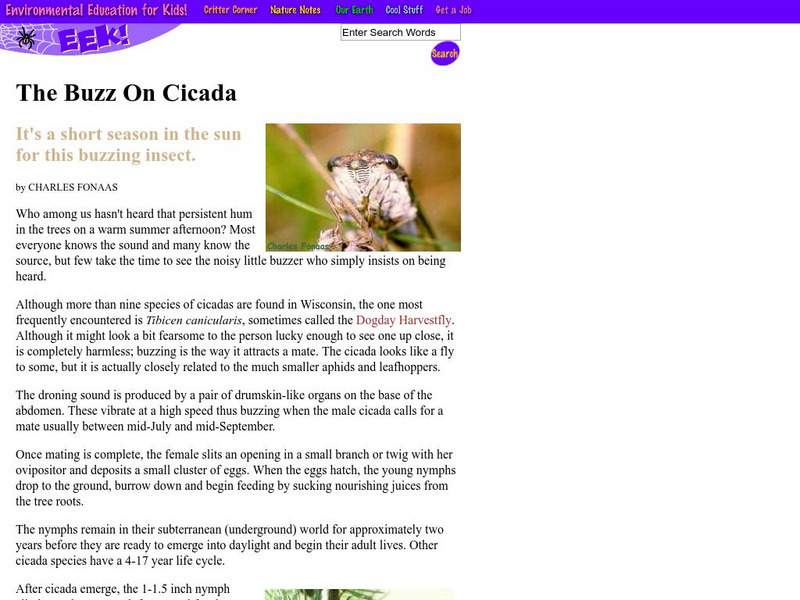Other
Science4 Us: Animals
In online and offline activities, students broaden their understanding of animals by learning to identify and classify animals into six categories: mammals, birds, fish, amphibians, reptiles, and invertebrates.
Alabama Learning Exchange
Alex: What Is Alive?
This lesson is the opening lesson for a unit of study entitled "Why Doesn't A Caterpillar Grow Up To Be An Oak Tree?" during which learners take a look at life cycles of plants and animals. This lesson will encourage students to explore...
University of Florida
Florida Museum of Natural History: Animals 2: Insects and Spiders
This teacher's guide focuses on the smaller animals that inhabit our world: insects and spiders. These fascinating creatures provide young children many hands-on opportunities to learn about the diversity of living things, how living...
Enchanted Learning
Enchanted Learning: Pond Life Animal Printouts
Filled with printable pages of both plant and animal pond life, Enchanted Learning features fact sheets with color pictures.
Australian Museum
Australian Museum: Beetles
This thorough site provides a general overview of beetles and focuses on topics such as habitat, anatomy, life cycle, feeding, predation and defense, and beetles as pests.
BiologyWise
Biology Wise: Parasitic Flatworms
Describes types of flatworms that are parasitic to humans and animals and what their life cycle looks like. Two or more hosts are needed for them to complete their life cycle.
San Diego Zoo Global
San Diego Zoo: Turtle and Tortoise
This resource provides detailed information about turtles and tortoises, as well as several pictures and an audio clip.
PBS
Pbs Teachers: Scientific American: Life's Little Questions: Can You Beat Jet Lag
Explore the human body's need for a normal cycle of dark and light and apply this to an understanding of biological clocks in other animals. Test the effect of light on the development of mealworm larvae into adults.
Other
Parasitology: Chapter Five: Cestodes
An exhaustive look at numerous types of tapeworms that infect different animals. The site contains numerous pictures and life cycle diagrams. There are links to lectures and additional websites.
Environmental Education for Kids
Eek!: Cicada
This site provides a brief but concise description of this interesting insect. Grades 4-8.








